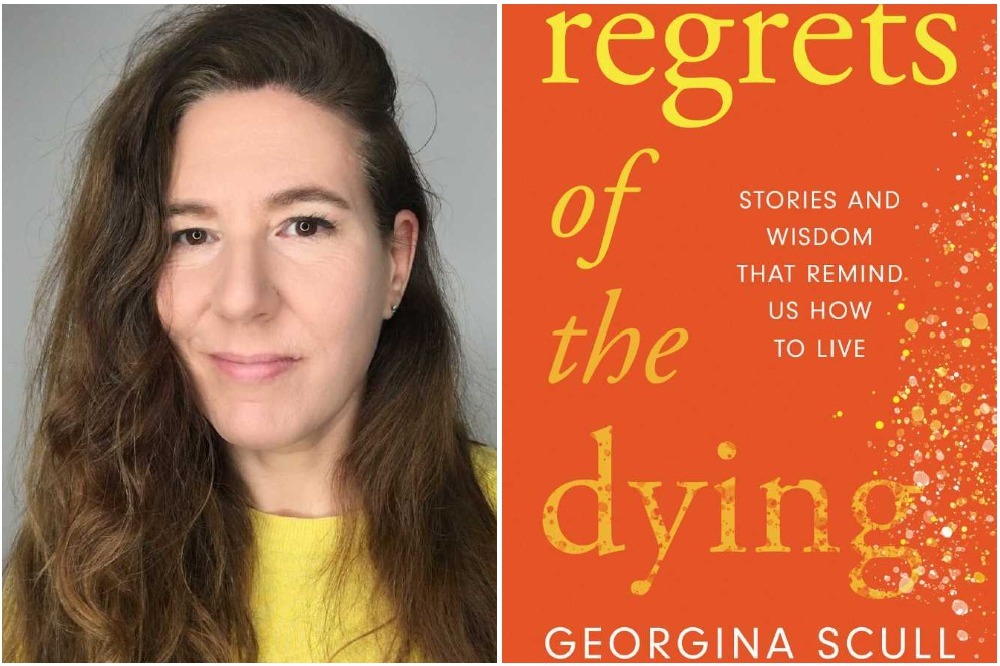‘It can feel very daunting being on the outside...’

Georgina Scull, Regrets of the Dying
I started writing when I was 19. And this year, at the age of 48, my debut book is finally being published. So, why did it take me so long? There are many reasons; some within my control and some not. Here are a few of the things I wish I’d known sooner.
1. Find a way. Modern life is busy. Our bills need to be paid, and our families need to be cared for. But if you really want to write, then write. One hour every morning, or evening, or even on your commute to and from work if you can. Don’t make excuses: find a way and be consistent. The words really do add up.
2. If you don’t send it out, no one can read it. I know this means no one can reject it either, but if you have a manuscript sitting in a drawer somewhere then dig it out, rewrite it, rewrite it again and then see if you can find a proper home for it; an agent who will secure you a deal, or an editor at a publishing house that will foster it. Because if you don’t send it out then you’ve already rejected yourself.
3. First impressions count. If someone agrees to read your work, then make sure it’s ready. You will be competing with a vast number of manuscripts, and people in the industry rarely have time to look over that second draft you know is so much better than the first. It doesn’t have to be perfect, but it has to be as perfect as you can get it. The time you spend editing will (probably) save you a few rejections, too.
4. If you don’t have any connections in the industry, then make them. It can feel very daunting being on the outside. It can feel like everyone else knows each other, and went to the same school together, when you most definitely did not. But, in my experience book-people are good-people. They want to find stories and writers they can champion. Don’t be scared to reach out for advice or guidance, or to pitch your work. Just make sure you’re mindful of their time, and respectful of any advice given.
5. Do it for love, not money. Publishing, like all other industries, is a business. Its function is to connect readers with stories whilst making money in the process. Some writers have the brilliant talent of creating commercial fiction purely for profit: the chances are you won’t be one of them (I know I’m not), and people can usually tell when you’re writing for the market rather than writing a story you really feel compelled to tell. So, write what you love. And then hopefully the reader will love it, too.
About the book
‘This book may appear to be about death and regrets, but is in reality about life and choices. It is warmly life-affirming, reminding us that if we can fill our hearts with contentment, rather than the pointless pursuit of happiness, then we leave little space for regrets. A magnificent read that will inspire. I loved it’ SUE BLACK
Georgina Scull was 37, living in New Zealand with her husband and their young daughter, and expecting their second child. There was a problem with the pregnancy. Georgina was 5 minutes away from an almost certain death.
In the aftermath she found herself consumed with regret; with all the things she hadn’t done or had failed to do. Searching for a way to move on, her brush with mortality ignited an overwhelming desire to speak with others who faced their own end. This book is the result.
Regrets of the Dying is a unique collection of stories from people all over the world. From different backgrounds, of different ages and each with an incredible tale to tell. This is not a book about dying and the end of life. It’s about all the ways life can be lived, the choices we make and the things we wish we’d said or done.
Georgina had two caveats when finding people to interview for this book: they needed to be over the age of 70 or living with a life-limiting medical condition. The interviewees come from all corners of the globe and range in age from 28 to 94. Amongst those who have told their stories with unfiltered honesty are Alan, a hardworking company executive who put financial stability above family time; Millicent who harboured a life-changing secret which threatened to tear her family apart; and Kathy, who clung onto a bad relationship for 36 years in the hope it would improve. There are many others, all sharing their innermost secrets, their deepest fears and their biggest regrets.
Regrets of the Dying explores what it feels like to know you’re running out of time. It forces us to question what is really important, and what we might let go of. It asks each of us what we’d define as a life well-lived. The book includes the author’s top ten tips for living a less regretful life. Your bucket list may never look the same again. Georgina Scull divides her time between Cambridge and London. She is an award-nominated writer and this is her first book.


